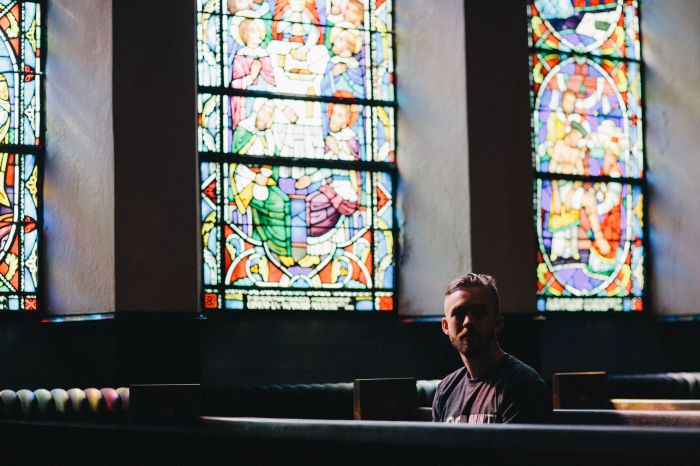Existentialism aside, I think this is something we all ask and it seems like a pretty foundational question. And once it’s answered, we usually live out from the answer.
“If this is who I am, this is how I will act in relationships.” “If these are my gifts, then this is the calling God has for me.” “If this is what I’m feeling, then this is how I should move forward.”
But here’s the problem with that line of thinking:
“If this is how my dreams/ hopes/ desires/ demands are being thwarted, then God must not be for me or just doesn’t even exist.”
Escalated quickly, yes?
I think we have embarked on our search for identity wrong. And we may “know” we are to find our identity in Christ, but do we really by-heart know it?
I was recently introduced to a line of questioning by my small group leader, but this was adapted from Jeff Vanderstelt. Here’s the order in which I usually ask these questions:
- Who am I?
- So how do I respond?
- What did God do for me?
- Then who is God?
But how unfortunate is that? My self-view and behavior have no bearing over who God is and what he’s done!
For example, when I was once passed over for a professional role I had thrown my hat in the ring for, I was trying to re-examine some goals. Who was I? I was a failure and probably not meant to be where God had placed me. How was I to respond? Hide, of course! I had failed and been rejected and could not let people know I was a fraud! What did God do? He had placed me here to reveal my inadequacy. Then who is God? He’s trying to teach me a lesson about not feeling too confident in my abilities.
…There’s a lie in there somewhere. Maybe more than one.
If I truly want to understand who I am, I need to flip my understanding of myself on its head. This often means flipping my frame of understanding around:
- Who is God?
- What did God do for me?
- So how do I respond?
- Then who am I?
When these questions are answered in the proper order, I am able to live out of the story of the gospel, rather than the story of selfishness I am trying to tell on my own. Living out of the gospel gives me and outward and upward perspective, rather than trying to satisfy my inward longings.
Let’s look at that same scenario:
Who is God? He is my father and creator. What has he done for me? He as saved me and covered me in his righteousness because of his great love for me. How to I respond? I trust that what he has for me is best in both success and failure. Then who am I? I am dearly loved and no good thing has been withheld from me.
With these questions in a proper order, my view of God and view of self are also ordered properly. From there, I can respond out of truth and walk forward in faith despite the hurt of my circumstances.
Which set of questions are we living out of and how is that effecting our friendships, families, marriages, vocations, and even our self-talk?
The first question may be, “Who are you?”, but the second question must be, “How are you going to answer that?”






 We are broken and so in need of saving—saving that has only be done! Now we partner with the spirit in the work of sanctification. We surrender to what God is working out in us so that we may look more like Jesus. This is a daily putting on of the gospel. This is a daily reminder of the story that I have been grafted into. It is getting down on my knees, getting in the word, and accepting the great, expensive grace lavished upon me like it’s cheap.
We are broken and so in need of saving—saving that has only be done! Now we partner with the spirit in the work of sanctification. We surrender to what God is working out in us so that we may look more like Jesus. This is a daily putting on of the gospel. This is a daily reminder of the story that I have been grafted into. It is getting down on my knees, getting in the word, and accepting the great, expensive grace lavished upon me like it’s cheap.


